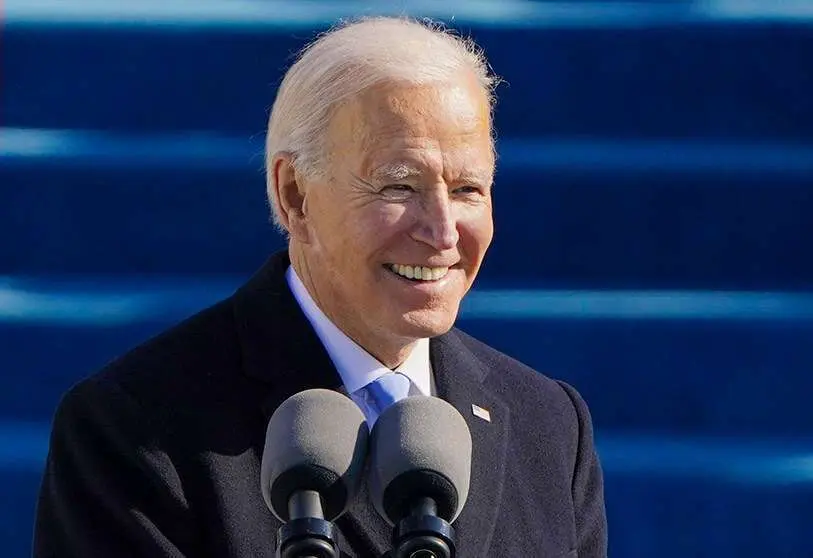Is the unity Biden calls for really possible?

The idea of unity has always illuminated American democracy, ever since the founding fathers signed the Constitution still in force in the United States. That is why President Joe Biden's constant appeals to the unity of the country in his inaugural address, understood as fraternity within diversity and the search for common goals, did not sound strange on the morning of 20 January on the steps of the west front of the Capitol. On the contrary, it was to be expected that the new president would repeat over and over again the word on which he will build his mandate. Biden faces the challenge of uniting what has been separated by the most toxic man in the White House in half a century, since the days of Nixon. What God brought together, man has torn apart. The challenge will be to overcome the reluctance of many Americans who are wary of his policies because of the harm they might do to their well-being and their individualistic primacy, honest, hard-working citizens who see too much hidden or subterranean dependence of the now president on the more radical circles of the American left, from which it will not be easy for him to disengage even for the sake of the proclaimed and necessary unity.
It is not a question of convincing the most exalted Trumpists, those who support the outrage against democracy committed in Congress on Epiphany. He is not going to seduce them with his kid gloves or his apparent moderation of form, so necessary, moreover, after the overreactions of his predecessor. They will only be convinced by the courts and the exemplary sentences hanging over their heads, now that they have already been identified thanks to their own selfies in the corridors, hemicycle and offices of the House of Representatives. It is about his ability to win over, if only emotionally, the traditionalist, largely rural, conservative white majority that has given 75 million votes to his opponent. To the lifelong Republicans, those who recognise the common good of their country and fight every day to achieve goals that are unattainable in other parts of the world, dreams that are possible in the land of opportunity that is America.
Nor will he escape, in this endeavour that Biden has self-imposed in the most important speech of his life so far, from the obligation to remove from radicalism those sectors that have been the spigot of provocation since Trump took office in January 2017. The electoral legitimacy of his victory was denied by a part of the United States that does not hesitate to use harassment in the streets and in public life against anyone who steps outside the politically correct discourse. Last summer's violent demonstrators in Kenosha, in Minneapolis, in the big cities of most states, in the state of Oregon or in Los Angeles, are equal parts Biden's other objective to achieve the unity of the country. Will he manage to convince the intolerant left, which has even wanted to tear down all the statues of Columbus or Junípero Serra, that now that he is governing it is necessary to fraternise and leave behind the fire in the streets? Because the other side of the attack on the Capitol was the savagery in the streets, we can't just focus on the reaction they provoked by forcing parents to take up arms because they felt their wives and children were threatened. Antifa is the other house of QAnon, and the president will not be able to dismantle one of them without acting against the other at the same time. If he owes one of them anything and feels bound hand and foot to remove it, the unity he proclaims will not be possible.
There is a conviction among many Americans that dark times are coming, even darker than those of Trump. A prominent Republican adviser told me a few days ago of his fear, or rather his certainty, that the Democrats are going to turn the US into a dictatorial regime. The paradox is that many of his compatriots have thought so too, but in the opposite direction over the past four years. My friend told me more: he believes that publicly supporting Trump is and has been in recent times a very dangerous daring that puts at risk even the family of those who speak out in such a way in this "uncivil war" that the new president abhors. A society that reaches this level of simmering tension cannot overcome the obstacles with a mere speech full of appeals for unity. It needs actions aimed at stitching together what has been unravelling for many years, not just Trump's.



